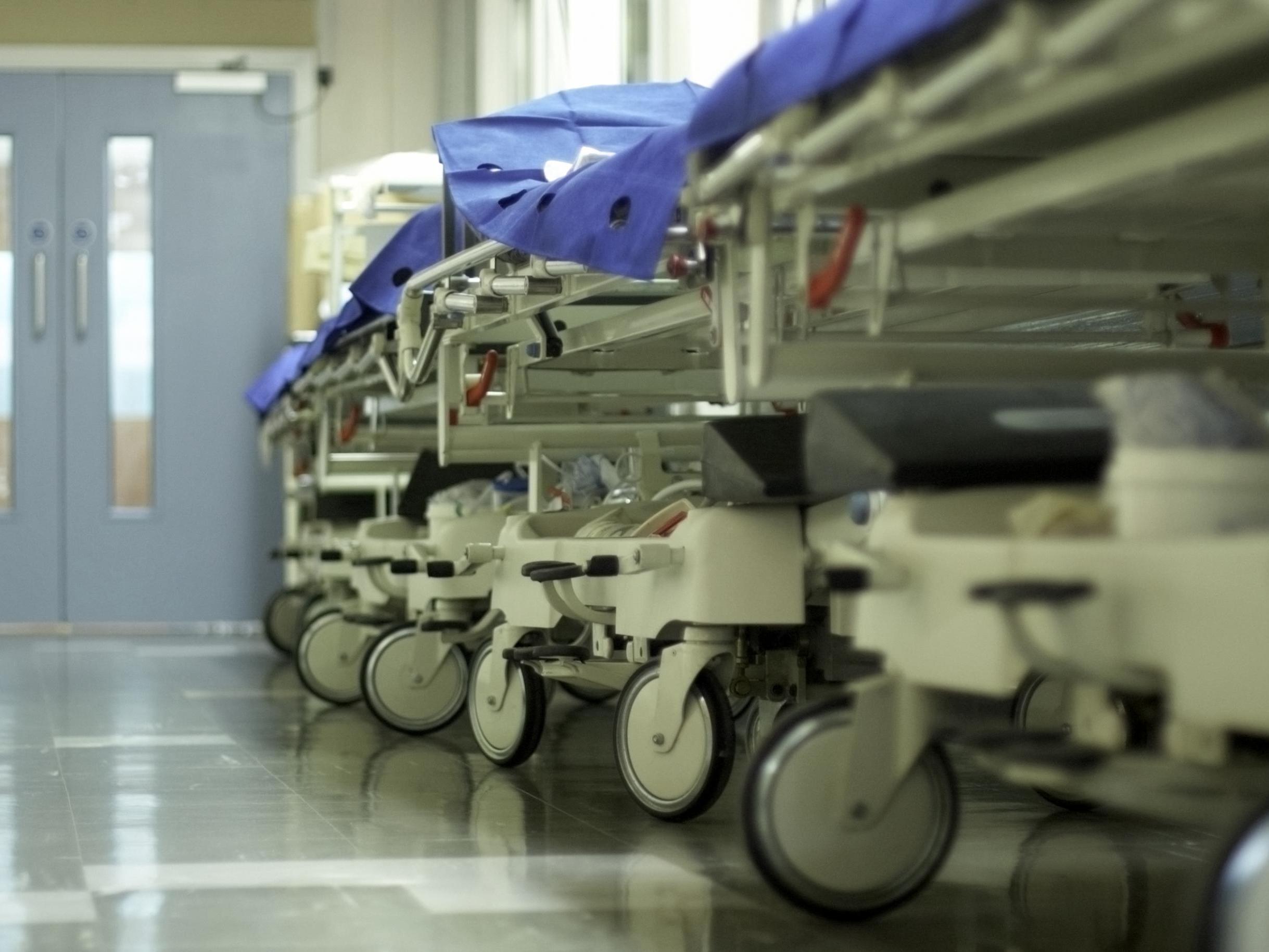Key measures to stop next Harold Shipman ignored by hospitals, Jeremy Hunt warns
Exclusive: Many NHS trusts yet to fill medical examiner posts as deadline approaches despite pilot schemes covering 27,000 deaths since 2008 finding that one in four hospital death certificates were inaccurate and one in five causes of death were wrong

Dozens of NHS hospitals have yet to appoint medical examiners whose roles are aimed at preventing a repeat of Harold Shipman‘s serial killings – with just months to go before the deadline.
A survey of more than 100 NHS trusts in England found that more than half had yet to set up the key posts, which it is hoped will be a crucial part of efforts to improve patient safety in the NHS.
Former health secretary Jeremy Hunt, who pushed through the policy and obtained the new data, warned that the delays in appointing medical examiners were “very concerning” and added that he believed the initiative would help to identify care scandals such as the maternity deaths at Shrewsbury and Telford Hospitals Trust sooner.
The introduction of medical examiners was first recommended following Dame Janet Smith’s 2001-2005 inquiry into Shipman, who is thought to have killed more than 200 patients with lethal doses of diamorphine before falsifying the death certificates. The examiners are required to independently verify the cause of death and speak to relatives about any concerns over care. Where necessary, they can refer a death to a coroner for investigation.
Despite legislation in 2009, the policy was repeatedly delayed due to concerns over funding. However, during Mr Hunt’s tenure as health secretary, trusts were told to prepare for the service to launch from April this year.
Following a Freedom of Information request, Mr Hunt learned that half of 103 hospitals did not yet have a medical examiner in post. While a majority of trusts had plans to appoint doctors to the new role, Mr Hunt said he was concerned the NHS was not taking the policy seriously enough, with some yet to even start the recruitment process.
Two of the trusts did not know what a medical examiner was and asked for clarification, while another trust assumed the survey was about medical-student examinations.
Mr Hunt, who is also setting up a new patient-safety charity and running to be the chairman of the health select committee in the House of Commons, said: “This long overdue reform is an essential way to persuade families that unexpected deaths in the NHS will not be swept under the carpet as happened so damagingly at Mid Staffs and Morecambe Bay.
“But, ahead of the April deadline, it is very concerning that the majority of trusts do not yet have plans for independent reviewers in place. This will be a huge worry both to NHS staff and patient safety campaigners.
“Those trusts without medical examiners must sort the issue in the next three months. It is likely that the terrible tragedy at Shrewsbury and Telford would have been averted if the system had been in place, so there is no time to waste.”
The number of medical examiners varies by trust, depending on the number of deaths each organisation expects. For instance, there are four at Norfolk and Norwich University Hospitals Foundation Trust, seven at Basildon and Thurrock University Hospitals Foundation Trust, and 11 at Manchester University Foundation Trust.
Pilot schemes covering 27,000 deaths and running since 2008 found that one in four hospital death certificates were inaccurate and one in five causes of death were wrong. In 10 per cent of cases, the underlying cause of death was changed after the medical examiner’s investigation.
The pilots also showed that medical examiners can spot systemic safety risks, including previously undetected infections, poor nursing and medical care, and allegations of neglect.
A Department of Health and Social Care (DHSC) consultation in 2016 concluded that a system of medical examiners would have “detected much earlier” the problems at Mid Staffordshire Foundation Trust.
Medical examiners were originally intended to be independent of the NHS but will now be employed by NHS trusts. They will be overseen by regional medical examiners and will be able to report any concerns to the national medical examiner, Dr Alan Fletcher.
An impact assessment by the DHSC found that the introduction of medical examiners would lead to about 140 extra cases being referred to coroners for investigation.
To get the service up and running, the DHSC will invest almost £20m in the interim setup and another £15m in running the medical-examiner system until parliament can activate legislation to introduce a new single fee following a death, which will replace existing cremation fees.
NHS National Medical Examiner, Dr Alan Fletcher, said: “I am very pleased that the majority of acute NHS trusts are making great progress in recruiting medical examiners and are on track to meet the April deadline. “Medical examiners are already listening to bereaved loved ones by giving them the support and answers they need while providing an extra layer of scrutiny for investigations.”
Dr Suzy Lishman, chair of the medical examiners committee at the Royal College of Pathologists, which is responsible for training examiners said: “By April 2020 over 650 doctors will have completed their training, with more booked over the following months.
“It is very encouraging that half of trusts already have a medical examiner service in place, despite the scheme still being in the non-statutory phase. Many other trusts are advanced in their implementation planning.”
Subscribe to Independent Premium to bookmark this article
Want to bookmark your favourite articles and stories to read or reference later? Start your Independent Premium subscription today.

Join our commenting forum
Join thought-provoking conversations, follow other Independent readers and see their replies